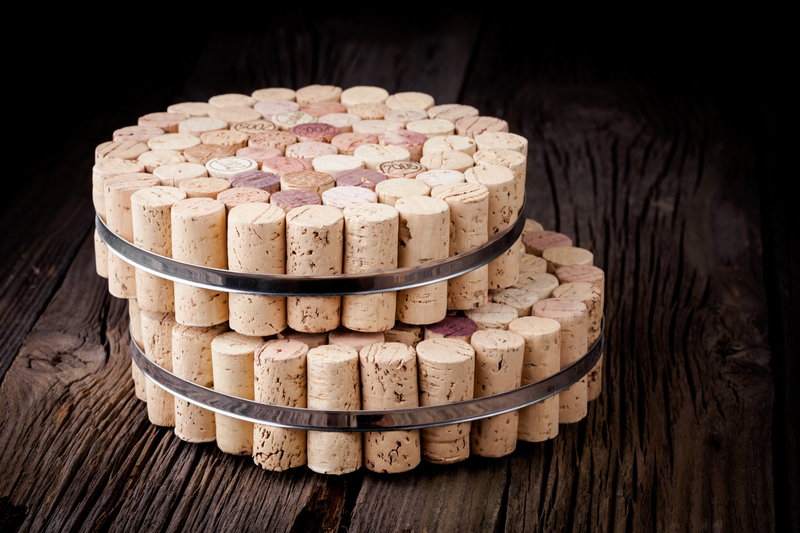Tips for Organic Waste Management
Posted on 14/10/2025
Tips for Organic Waste Management
Organic waste management is becoming increasingly important as we become more aware of the environmental, economic, and social impacts of waste. Organic waste includes household food waste, garden waste, and other biodegradable materials that decompose over time. Effective management of this waste can lead to numerous benefits such as reduced landfill usage, improved soil health, and lowered greenhouse gas emissions. This article will outline key tips for managing organic waste and highlight the importance of doing so.
Understanding Organic Waste
Before diving into the tips, it's essential to understand what constitutes organic waste. Organic waste is any material that comes from plants or animals and is biodegradable, meaning it breaks down naturally in the environment. Common sources of organic waste include:
- Kitchen scraps like fruit and vegetable peels
- Leftovers and spoiled food
- Yard waste such as leaves, grass clippings, and branches
- Animal products like meat and bones
Now, let's delve into the tips for effectively managing this type of waste.

Composting
One of the most effective ways to manage organic waste is through composting. Composting is the natural process of recycling organic material into a rich soil amendment known as compost. Here are some tips for successful composting:
Choose the Right Location
Place your compost bin or pile in a well-drained area with good air circulation and partial sunlight. This will help speed up the decomposition process.
Balance Greens and Browns
Composting requires a balance of green materials (rich in nitrogen) and brown materials (rich in carbon). Greens include food scraps and grass clippings, while browns include leaves, twigs, and cardboard.
Aerate Regularly
Turning your compost pile regularly ensures that oxygen is evenly distributed, which is essential for aerobic decomposition. Aim to turn the pile at least once a week.
Monitor Moisture Levels
Your compost pile should be as moist as a wrung-out sponge. Too dry, and decomposition slows down; too wet, and you run the risk of foul odors. Adjust the moisture by adding water or dry materials as needed.
Vermicomposting
Vermicomposting is a method of composting where earthworms digest organic waste to produce a nutrient-rich soil amendment. This method is particularly useful for those with limited outdoor space. Here are some tips for vermicomposting:
Select the Right Worms
Red wigglers (Eisenia fetida) are the best worms for composting. They thrive in the composting environment and efficiently break down organic materials.
Maintain the Right Conditions
Keep your vermicompost bin in a dark, cool place, ideally between 55-77?F (13-25?C). Ensure the bedding (made from shredded newspaper or cardboard) is moist but not soaking wet.
Feed Properly
Start by adding small amounts of food waste and gradually increase as the worm population grows. Avoid feeding them large quantities of meat, dairy, and oily foods, as these can create unpleasant odors and attract pests.
Mulching
Mulching is another excellent way to manage garden waste. Mulch is a layer of material applied to the surface of the soil to conserve moisture, improve soil health, and reduce weed growth. Here are some tips for effective mulching:
Choose Appropriate Materials
Common organic mulching materials include straw, wood chips, grass clippings, and leaves. Each has its benefits and best uses.
Apply at the Right Time
Apply mulch in late spring or early summer when the soil has warmed up. This helps to conserve moisture and discourage weeds from germinating.
Maintain the Right Thickness
A 2-3 inch layer of mulch is usually sufficient. Too much mulch can suffocate plants, while too little won't provide the desired benefits.
Utilize Community Composting Programs
If home composting isn't feasible, consider participating in community composting programs. Many municipalities offer curbside collection of organic waste or have community composting sites. Here are some steps to get involved:
Research Local Programs
Check your local government or waste management website to find available programs. Some communities may offer free bins or incentives for participation.
Follow Guidelines
Adhere to the program guidelines regarding what materials are accepted and how they should be prepared for collection (e.g., using compostable bags).
Participate Regularly
Consistent participation ensures that the program remains viable and beneficial to the community. Use the drop-off locations or curbside collection services as scheduled.

Benefiting from Organic Waste Reduction
Reducing and managing organic waste has numerous benefits that extend beyond the immediate environment. Here are some of the key advantages:
Reduced Landfill Usage
By diverting organic waste from landfills, we can significantly reduce the volume of waste that ends up in these sites. This helps in conserving valuable land space and reducing landfill maintenance costs.
Lowered Greenhouse Gas Emissions
Organic waste decomposing in landfills produces methane, a potent greenhouse gas. Composting and other management methods help in reducing these emissions.
Improved Soil Health
Compost and mulch improve soil structure, aeration, and moisture retention. They also enhance nutrient content, leading to healthier plant growth.
Economic Savings
Proper organic waste management can lead to economic savings for both households and municipalities. Households save by reducing the need for chemical fertilizers, and municipalities save on waste collection and landfill costs.
Conclusion
Effective organic waste management is crucial for environmental sustainability, economic efficiency, and social well-being. By adopting practices such as composting, vermicomposting, mulching, and participating in community programs, we can significantly reduce the negative impacts of organic waste. Understanding what constitutes organic waste and how best to manage it not only benefits the environment but also enhances the quality of life for all. Incorporate these tips into your waste management routine to make a positive impact today.
Latest Posts
DIY Paper Recycling at Home in 6 Steps
Advance Your Recycling Approach
Plant-Based Plastics: Future Innovations






